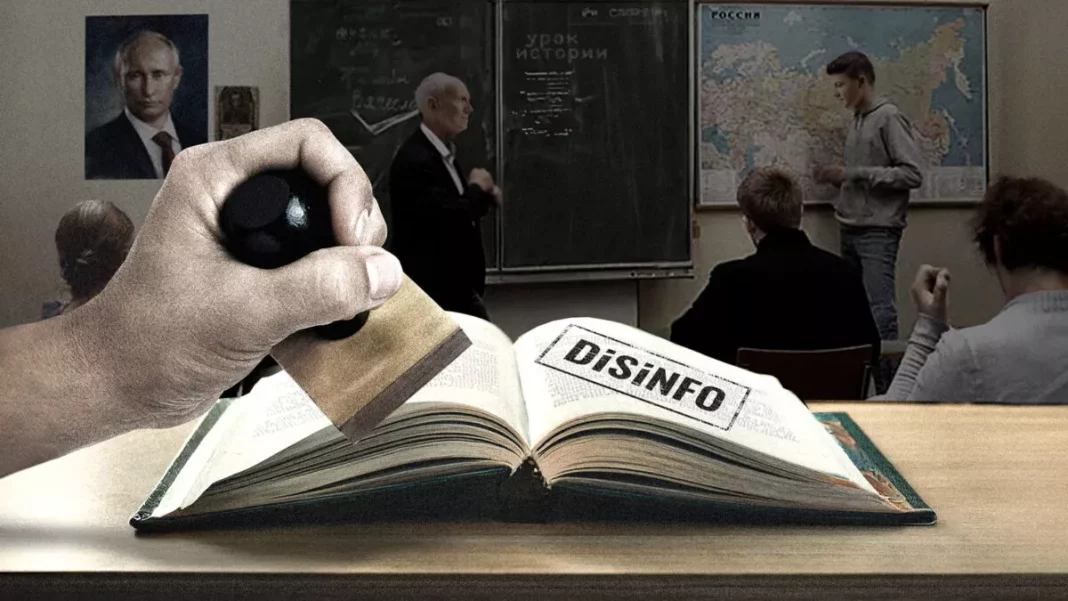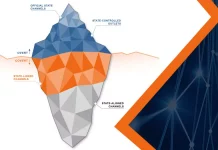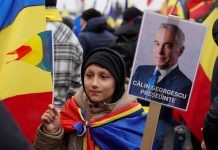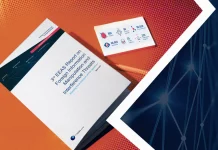By EUvsDisinfo
In this longread, we examine the role of the Russian school system in social engineering, shaping a streamlined, Kremlin-controlled way of thinking for entire generations of youth.
A year ago, on 1 September 2023, Russian high school students received new ‘revised’ history textbooks, which looked at Russia’s post-1945 past. We have previously exposed how these ‘textbooks’ presented the recent political events in Russia through the twisted prism of the Kremlin’s main disinformation narratives – Russia waging a ‘just’ war against neo-Nazi Ukraine; the actions of ‘evil’ NATO; the 2014 ‘coup’ in Kyiv orchestrated by Western security services; the glorious ‘Russian Spring’ with splendid elections calling for Moscow’s help, etc.
Unhappy Chechnya
The initial opposition to the history books came from an unexpected corner. In September 2023, Ramzan Kadyrov, president of the Chechen republic in the Russian Federation, ordered the removal of all these textbooks from Chechen schools, because their authors de facto justified Stalin’s deportation of the Chechens, Ingush, Crimean Tatars and other nations of the USSR in 1944 ‘due to their cooperation with the Nazi occupiers’. The Russian Ministry of Education quickly revised history once again to ensure that ‘all the mistakes about the Chechens had been fixed’.
This brief but telling example illuminates a worrisome trend in Russian education. Textbooks, particularly history books, need not be accurate, as long as the ‘historians’ align the ‘revisions’ with the contemporary, twisted worldview of Putin and his loyal cronies.

August 2024: Time to ‘revise’ higher education
On 6 August 2024, the Russian Ministry of Education introduced a new Russian history textbook, this time for university students from non-history departments. It appears the ‘revisions’ were such a rush job that the Russian authorities ran out of time to print the books, and so far, they are only available in electronic form. Just as with the versions for high school students in 2023, when parents were required to download and print the 450 pages until hard copies were on sale.
This 500-page book presents the Kremlin’s version of the course of Russian history from ancient times to the modern day. Invariably, it includes the ‘Special Military Operation’, the ‘incorporation of the new regions into Russia’, the terrorist attack on the Crocus City Hall, and the Nord Stream explosions.
Enter the spymaster turned educator
The notorious Russian spymaster and éminence grise Sergey Naryshkin ventured beyond his role as the Head of Russian Foreign Intelligence to flex his chops as a pro-Kremlin ‘historian’ and steward the putting together of this new textbook. Naryshkin’s newfound love for history as a tool of influence and manipulation is not as odd as it seems at first. In fact, he also serves as the Chairman of the Russian Historical Society, a dubious creation resurrected by Putin in 2012 and used ever since to skew history in the service of the Kremlin’s lies.
The Great Patriotic War as central focus
The main focus of the new textbook is on the history of the Great Patriotic War (the Nazi German invasion of the USSR 1941-1945) and the ‘genocide of the Soviet nation’. In a nutshell, the Kremlin’s ‘historians’, led by the Head of Foreign Intelligence, have produced a new version of the ‘true Russian history’, starting from talk of ‘Russian civilisation’, focusing on the ‘heroic defence of the Fatherland’, the suffering of the ‘Soviet nation’, and the ‘glorious deeds of the Russian Spring and the Special Military Operation’. This ‘true history’ fully reflects Putin’s pseudo-historical claims, justifying all the Kremlin’s aggressive actions, and indoctrinating young Russians into believing they live in a ‘camp under siege’.
One true history – and the way to teach it
Interestingly, Naryshkin suggested excluding additional sections on world history from the textbook. According to the Kremlin’s view, ‘this additional information overloads the course, and thus the material is poorly mastered by students’. So, with this new textbook, the Russian authorities essentially confirm that Russian students do not need a knowledge of world history. Instead, they must be taught the Kremlin’s pseudo-historical propaganda about the ‘Special Military Operation’ [SMO] and the ‘Russian Spring’.
The Kremlin as chief educator
In recent years, the Kremlin has followed a deliberate course of centralising the teaching of history and other humanities subjects in its own hands. Before September 2023, Russian universities had a certain freedom to shape the curriculum, chronological framework and methodological aspects of their courses on Russian history. Now, all universities must follow the idea of the one ‘true history’, as presented by the Ministry of Education.
No critical thinking, thank you
This is a return to Soviet-era practice: The dominant approach to teaching in Russian public schools, universities and other institutions of higher education is now again to lecture the textbook from A to Z and expect the students to reproduce this curriculum during tests. No more, no less. In general, very little emphasis is put on independent critical reflection by the student. There is one, and only one, ‘true’ version of a given subject. In a larger perspective, this approach to stifle independent critical initiative permeates many segments of Russian society and is also manifested in the intolerance towards opposition groups and independent media.
Resurrect the Soviet approach
In August 2024, the Minister of Higher Education, Valery Falkov, revealed that the Ministry had begun work on Putin’s order to ‘form a unified concept of teaching social science and humanities disciplines, with history and philosophy playing a central role’. According to Falkov, the Russian history course must complement the course ‘Foundations of Russian Statehood’; this step, he said, would help ‘boost students’ sense of belonging to Russian society and being Russian citizens’.
To this end, Alexander Dugin, hard-core Putinist, nationalist, and ideologist heralding Russian supremacy, was appointed to head a new centre at the leading Russian university preparing teachers for the humanities, RGGU. Dugin’s brief is to streamline and harmonise the teaching in a ‘patriotic’ direction.
The Kremlin’s manipulative intentions are clear. The Russian authorities want to prepare a unified concept of thinking. One ‘true history’, as written by the Kremlin’s security functionaries and puppet ‘historians’ is but one element in this push. Young Russians will be indoctrinated in schools and universities, exposing them to various pseudo-historical concepts of ‘Russian civilisation’, the ‘need to suffer for the Fatherland’, and the ‘heroism of the SMO soldiers’.
New books for grades 5-9 – Grab them young
Putin’s ‘historians’ have continued their ‘fruitful’ work on re-writing Russian history textbooks. Now they are turning their attention to school textbooks for grades 5 to 9 and these should arrive in Russian schools by the start of the next school year, 1 September 2025.
In March 2024, Putin’s assistant and head of the Russian Military-Historical Society, Vladimir Medinsky, announced the completion of ‘improved, adapted and more modern’ history textbooks for pupils in grades 5 to 9. These books cover Russian and world history from ancient to modern times. Medinsky is also a controversial former minister for culture.
The evil colonial empires and the good Russian
Even though the schoolchildren are taught a more ancient history, these newly revised textbooks now carry the Kremlin’s ideological narratives. According to one of the authors, 93-year-old Alexander Chubaryan, the new books revise the term ‘empire’. The main goal of this revision is to show the differences between the Russian Empire and ‘classic colonialism’, such as the British Empire.
Chubaryan claims that ‘all empires in the world had overseas territories, whereas Russia incorporated neighbouring territories into a common economic space, so they became a single unit with Russia’. These new history textbooks clearly explain to schoolchildren that the Russian Empire was not a colonial state but something ‘good’ while other empires were ‘evil’.
A sneak peak into the coming book: Russia as the cradle of civilisation
While we wait for the books to appear by next school year, we have been informed of the outline. The updated 5th grade history book will include elements of Russian history – ‘Chersonesus, Arkaim, Phanagoria, the Scythians, the Sarmatians and the first Slavs’, not just the histories of ancient Rome, Greece, and the Eastern Roman Empire.
The Kremlin underlines the ‘ancient’ character of ‘Russian civilisation’, drawing false parallels between the history of the Muscovite state and those of ancient Greece, Rome, and the Eastern Roman Empire through the use of the following historical places:
- Chersonesus – an ancient Greek colony situated on the outskirts of Sevastopol in Crimea. Putin has repeatedly called Chersonesus a ‘sacred place’ for Russian history and spirituality – the place where the Kyivan Grand Prince Volodymyr accepted Christianity for the Kyivan Rus’. Russian ‘ownership’ of Chersonesus is one of the key narratives of the Kremlin’s view of history – it is used to justify not only the illegal Russian annexation of Crimea in 2014, but also helps Russia appropriate the history of the Kyivan Rus’, presenting it as the ‘foundation’ of the Muscovite state;
- Phanagoria – an ancient Greek colony situated on the Taman peninsula on the Russian Black Sea coast. In 2011, Putin visited this colony, randomly ‘finding’ two ancient amphoras deep in the sea;
- Arkaim – this place is an ancient settlement, found in the Russian Ural region, and dated to the 17th to16th centuries BC. Its discovery in 1987 caused the spread of numerous pseudo-historical theories in Russia. Allegedly, Arkaim is the ‘birthplace of the Aryans’, the ‘model for a new spiritual civilisation’, the ‘Asgard of Odin’ and the ‘birthplace of Zoroaster’. These theories have been actively used by Russian nationalists to claim the existence of an ‘ancient Russian-Aryan civilisation’, which functioned at the highest technological and spiritual level. More about pseudo-historical ideas concerning Arkaim here.
These new Russian school textbooks, it seems, will not include evident conspiracy theories about Arkaim, but the very fact that they mention this controversial place shows that the Kremlin is continuing its search for the ‘ancient’ roots of ‘Russian civilisation’.
By EUvsDisinfo





